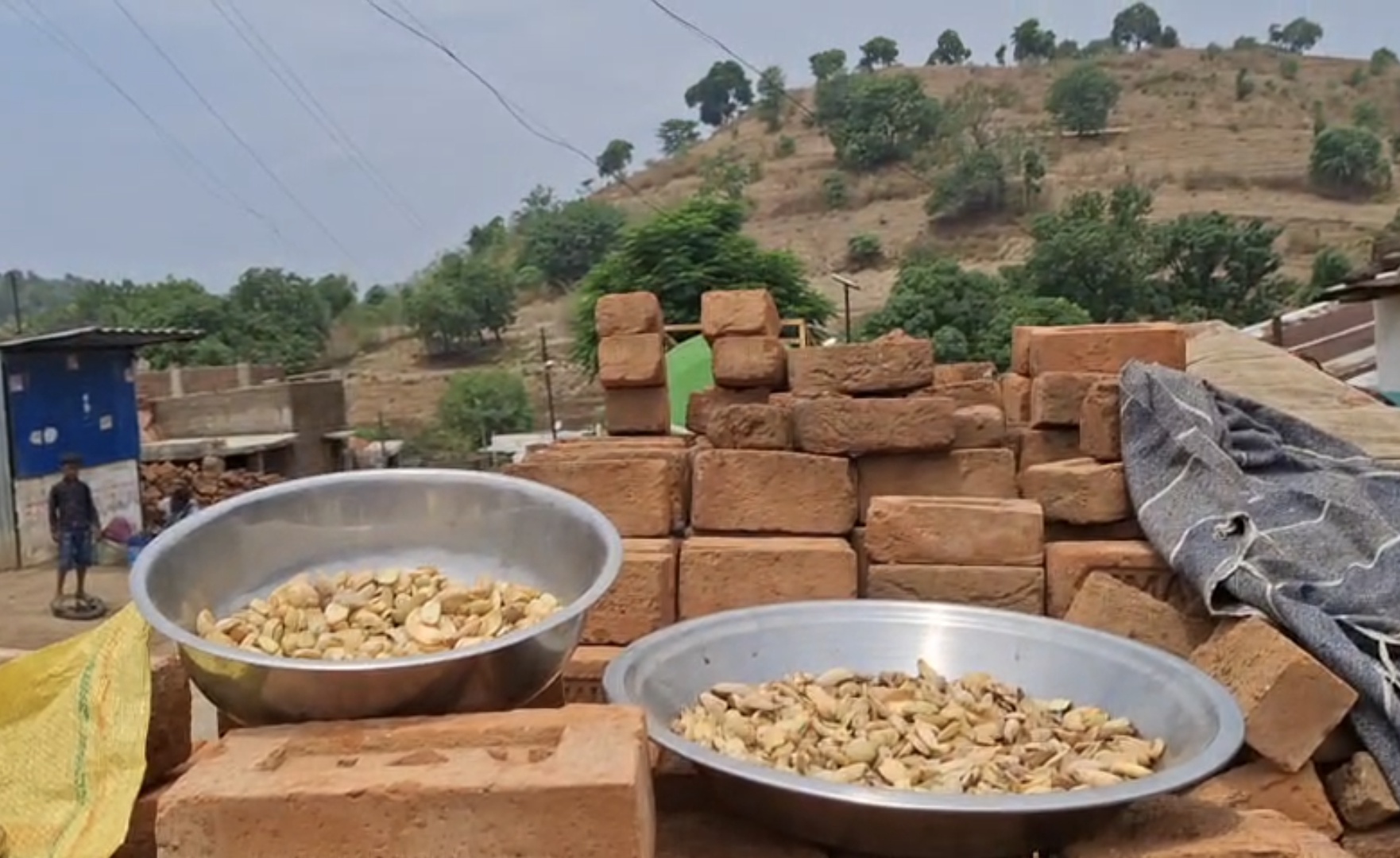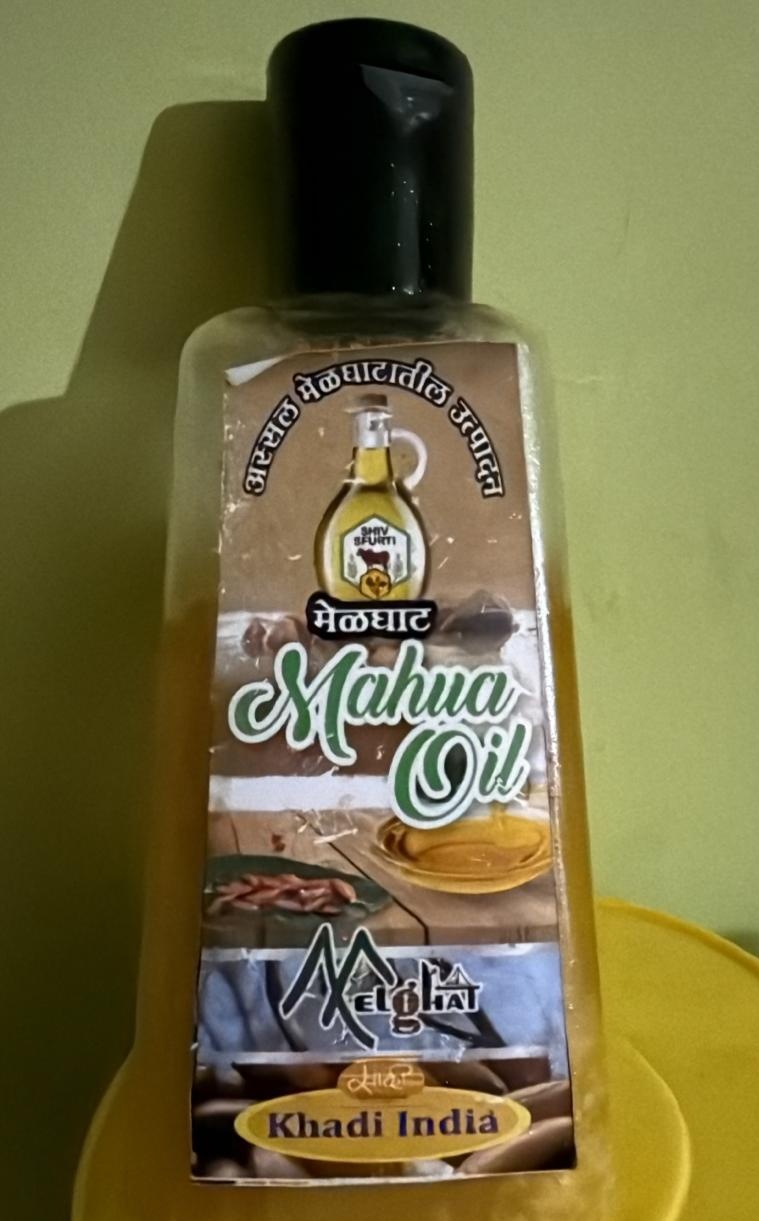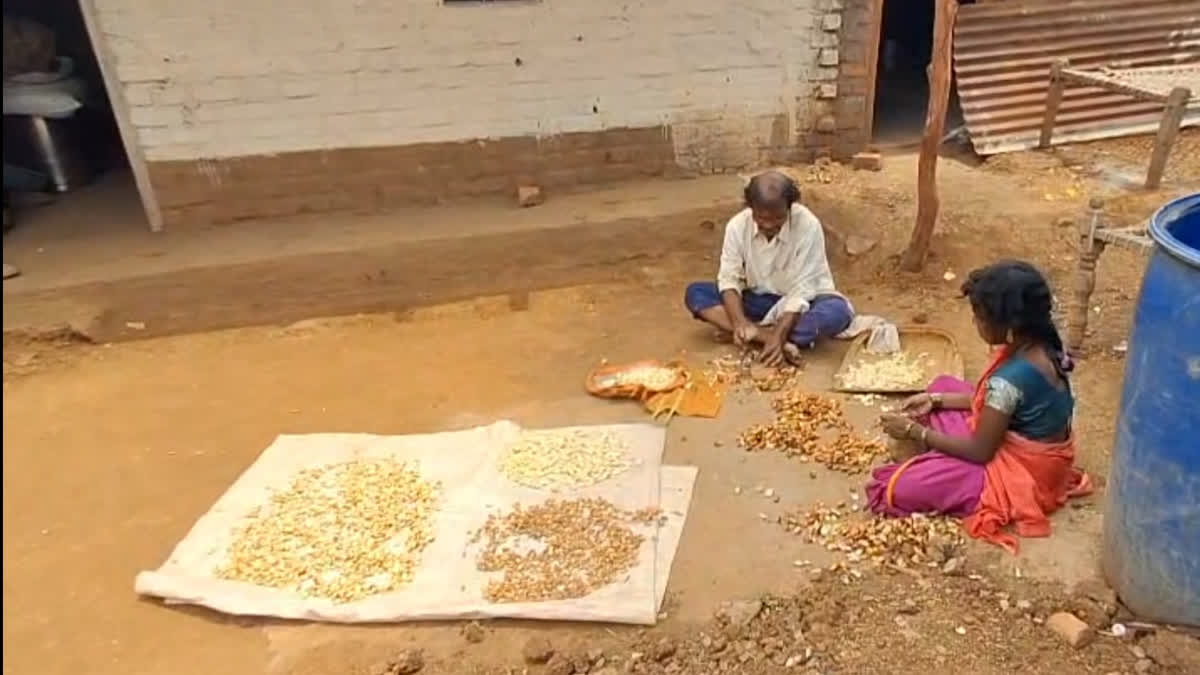Amravati: Of the many nature’s bounties in tribal life, the Gulli flowers and fruits are the most commonly seen produce in almost every house in the Adivasi village of Melghat, Maharashtra. Members of the tribal families work together at home around this time of the year, breaking the dried gully fruits and producing medicinal oil from them. The tribal community has a tradition of using gulli oil in cooking for many generations. What exactly is gulli oil, which is effective against not just one or two but many diseases?
This special report by “ETV Bharat” examines the significance of Gulli trees in the tribal way of life in these parts. There are a large number of Mahua/Moh trees in the forests of Melghat, which bloom in summer. The flowers on this tree fall in the morning. These flowers are picked and dried. After that, Siddu, or alcohol, is extracted from these dried flowers. These flowers are usually dried for many days.
Melghat tribals extract Gulli medicinal oil. (ETV Bharat)
When the flowers fall, the Moh tree bears fruits in May. These fruits have a hard shell. This Moh fruit is called Gulli in the Korku language. Now, during the monsoon, oil is extracted from these Gulli fruits.
Bats drop fruits under the trees:
“The fruits of the Moh tree are hard. Bats live on the Moh trees in large numbers. These bats pluck out and drop these fruits from the tree. After that, the tribals pick the seed-like fruits that have fallen from the tree and bring them home. The women of the house break the hard shell. Later, the broken shells are dried,” said Hira Jambhekar, a resident of Amzari.
 Broken Gulli shells being dried at Melghat tribal village. (ETV Bharat)
Broken Gulli shells being dried at Melghat tribal village. (ETV Bharat)
As a Cooking Ingredient and for Massage:
“If your hands and feet are hurting, rubbing Gulli oil on them gives great relief. If your knees or back are hurting, massaging with this oil relieves the pain,” Siddu Jambhekar, an old woman from Amzari village, said.
Similarly, “We make Mohachi Bhaji using Gulli oil by adding onion and garlic to it. This oil can be used in any vegetable,” Siddu Jambhekar said.
New generation not following traditions:
“Gulli oil is eaten in both the rainy and winter seasons. The taste of this oil is a little bitter. However, when cooked with spices, it tastes delicious. Many of our generations have used this oil. However, today’s generation gives this important oil to outsiders and brings oil from outside for themselves in return. Today’s generation is no longer following old traditions,” Siddu Jambhekar expressed regret. “I break all these Gulli shells at my house. I keep them outside to dry. After that, my son goes to the city of Parthwada and extracts the oil from it,” Siddu Jambhekar said.
 Tribal product of Mahua oil from Melghat. (ETV Bharat)
Tribal product of Mahua oil from Melghat. (ETV Bharat)
Benefits of Gulli oil:
“This oil is very effective for treating itching, blisters, scabies, psoriasis, and skin diseases. Along with this, heating this oil and massaging it on arthritis-affected body parts reduces the pain,” informed Dr Vishal Jaiswal from Chikhaldara. “Since it has anti-inflammatory properties, a wound heals quickly with this oil. This oil is useful for heat-related disorders. If you have a headache, applying this oil on the forehead provides relief. In many areas of Melghat, this oil is used for toothache. Especially, this oil is also effective for dental diseases. If you massage with this oil, the skin remains soft and you do not feel tired at all. In many places in Chikhaldara and Dharani taluka, the elderly use this oil in food. The importance of this oil is well known to the tribals for many generations,” Dr. Vishal Jaiswal said.
Khadi Gram Udyog Mandal:
“To make this oil of Melghat available for use far and wide, the Khadi and Gram Udyog Mandal has given the task of collecting, crushing and drying the Gulli fruits to many women’s self-help groups in Chikhaldara taluka. Employment is being provided to tribal women. In the Spurti cluster in Chikhaldara, oil is extracted from Gulli brought by the women’s self-help groups. Every 200 grams of oil is sold at the rate of Rs. 250,” said Sunil Bhalerao, director of the Spurti cluster.
Read More:
1. PM Modi Arrives In Gujarat For Two-Day Visit; Holds Roadshow In Vadodara
